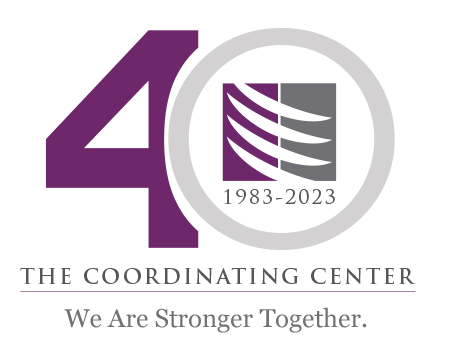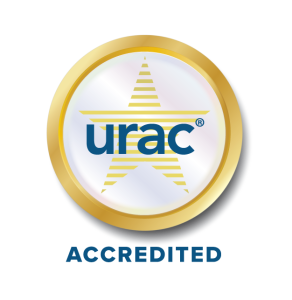April, World Autism Month and National Autism Acceptance Month (previously named Autism Awareness Month) is a time to publicly celebrate and promote acceptance of Autism, the fastest-growing developmental disability in the United States, with one in 36 children receiving a diagnosis, according to last month’s newly released report from the Centers for Disease Control (CDC). “Autism, a complex developmental condition affecting the patient’s ability to interact, communicate, and progress, has not one but many subtypes. First held in the year 1972 by the Autism Society, Autism Acceptance Month emphasizes the need for public awareness to promote acceptance, celebrate the differences, and be more inclusive towards autistic individuals around us.”1
In 2021, Autism Awareness Month was renamed Autism Acceptance Month to foster acceptance and ignite change through improved support and opportunities in education, employment, accessible housing, affordable health care and comprehensive long-term services for autistic people. Christopher Banks, President and CEO of the Autism Society of America states that the shift was necessary as “acceptance is often one of the biggest barriers to finding and developing a strong support system. Acceptance is so integral that the Autistic Self-Advocacy Network (ASAN) has been referring to April as Autism Acceptance Month since 2011, expressing that accepting autism as a natural condition is “necessary for real dialogue to occur.”
 We recently sat down with Sheri Weissman, Director, Autism Services for The Coordinating Center to learn more about the autistic community and services provided by the Autism Services team.
We recently sat down with Sheri Weissman, Director, Autism Services for The Coordinating Center to learn more about the autistic community and services provided by the Autism Services team.
What would you like Allistic (a.k.a. neurotypical) people to know about the Autistic community?
“While I think that we’ve come a very long way in the almost 25 years that I’ve been in the field, as a result of increased awareness, there is still so much that we don’t fully understand about autism, and so much more that we as a society can be doing to be more inclusive to all in the neurodivergent population.”
“As a neurotypical, my understanding of autism has been informed by both professionals and autistic individuals. While we neurotypicals have a lot to share based on our own experience with autistic individuals, the information that has impacted me the most has come directly from autistic people, either through reading or talking with them.”
“I will share a few important things I frequently read and hear from those who know best:”
- Eye contact can be incredibly challenging and, in some cases, painful for autistic people.
- Language is incredibly important. Some autistic individuals prefer identity first language (an autistic person) while other individuals with autism prefer person-first language (an individual with autism). Some additional language that is seen as problematic when referring to autistic individuals includes (but is not limited to): low and high functioning, special needs, challenging behaviors, and other deficit-based language.
- Always presume competence.
- Being nonverbal or limited verbally doesn’t equate to having nothing to communicate.
- Dr. Stephen Shore, an autistic professor of special education, is known for saying “when you meet one person with autism, you’ve met one person with autism”. This is one of the most important philosophies of the Autism Services team. We fully understand that having a lot of experience does not make us experts on the students that we serve. While our experience can provide some helpful guidance/advice to families, oftentimes a collaborative approach with a bit of trial and error is what leads to positive outcomes.
What is Maryland’s Home and Community Based Services Waiver for Children with Autism Spectrum Disorder?
“The Maryland’s Home and Community Based Services Waiver for Children with Autism Spectrum Disorder (a.k.a Autism Waiver), is a Medicaid funded home and community-based program that was created to support autistic kids between one and 21 year’s old who are considered at risk for an institutional placement. In order to qualify, a child/young adult has to meet three levels of eligibility: financial (cannot have more than $2,500 of assets in their name); technical (have an IFSP or an IEP that has at least 15 hours of special education and related services; have a current ASD diagnosis that’s been confirmed within the past three years; attend an MSDE approved educational program; can be safely managed in the home and community).”
“The two most used services by our families include Intensive Individual Support Services (goal directed, focus on life skills) and respite (not goal directed, 1:1 adult support provided in the home, community, or at an overnight camp). Families can also access Therapeutic Integration (a center-based program focused on a variety of therapeutic goals); Family Consultation (e.g., support provided to parents based on presenting challenges with behaviors, life skills); Adult Life Planning (assist parent with plans for transition/adulthood); Environmental Accessibility Adaptation (adaptations made to the home to make it safer); and Residential Habilitation (out-of-home placement when behaviors become unmanageable at home),”
What counties does The Coordinating Center serve and how does your team contribute to the success of the Autism Waiver program?
“We currently serve Autism Waiver participants and their families in Dorchester, Harford, Howard, and Worcester counties. As the only agency that serves more than one county, we are in a very unique position to be able to advocate for individuals and families who have varying levels of access to much needed Waiver and non-Waiver resources. The Coordinating Center’s Autism Services team never misses an opportunity to sit on or initiate a committee or focus group to support participants and their families and the Autism Waiver. As co-facilitator of the State of Maryland’s Autism Waiver Service Coordinator focus group, I assist with bringing statewide concerns, challenges, and questions to the Autism Waiver Advisory Committee meetings. I also maintain regular contact with members of Maryland State Department of Education, MSDE and Service Coordinators across several jurisdictions which often focuses on what is currently being done and how we can do things better.”
“While COVID-19 presented a variety of challenges and changes to how we provided service coordination, The Coordinating Center’s Autism Services team presented supporting documentation for continued utilization of telehealth options for all service coordination activities which significantly benefits parents, who would no longer need to leave work or have to arrange transportation to attend an assessment meeting. It also benefited Service Coordinators who could complete required visits virtually if an in-person visit wasn’t possible. Our perspective and thoughts are often sought when there are decisions being made about policies and procedures, and we frequently share our families concerns and challenges with MSDE and Maryland Department of Health (MDH) so that the voice of one of the most important stakeholders is considered when decisions about the program are being made.”
How has the program progressed over the years and where do you see it heading in the next five years?
“Since I’ve been with the Waiver for over 20 years, I’ve had the opportunity to experience the Waiver’s evolution from having no registry, 900 available slots, and primarily serving kids in pre-school through elementary school to now having over 6,000 kids sitting on a registry, 1,500 available slots, and primarily serving students who are middle school age and older in which a large percentage are between ages 14 and 19. As the ages of individuals served has transitioned from very young to much older kids, we also saw a significant difference in both participant and family needs. I see the Waiver continuing to evolve while the number of individuals the Waiver serves will continue to grow. I also see The Coordinating Center’s Autism Services team continuing to advocate for Autism Waiver participants and their families as we have over the past 20 years.”
Tell us a little bit about yourself and your position at The Coordinating Center?
“I first learned about autism when I worked at a therapeutic summer program for kids with autism, ADHD, and Pervasive Developmental Disorder (PDD) while in college. After working at a residential treatment facility for abused girls for a year, I spent the next two and half years with Pressley Ridges new autism wrap-around program in Pittsburgh that provided Discrete Trial and Floor time therapies. I worked with kids between the ages of two and half and 10 years old in their homes, schools, and the community, and it is here where I learned that I absolutely loved working with autistic kids and their families.”
“When I moved to Maryland, I worked at Kennedy Krieger’s LEAP program during the day and part time with two autistic kids privately in the evenings. While working at LEAP, I pursued my Master of Social Work degree from the University of Maryland, Baltimore where I focused on program management with a health specialization and maternal child health sub-specialization. I stayed at my second-year internship and became a full-time international case worker while I searched for my perfect job.
I recently celebrated my 20th anniversary with The Coordinating Center. I was initially hired as a Service Coordinator for the Autism Waiver and two years later, I was promoted to Program Director. As Director, I work closely with the team to ensure that we are continually meeting contract requirements and supporting our students and their families in the best ways possible. I also continue to maintain a small caseload, so I never forget both the joys and challenges of the Service Coordinator role. I’ve also served on multiple committees and focus groups over the years. Presently I serve on the Autism Waiver Advisory Committee and cofacilitate the Service Coordination Focus Group.







